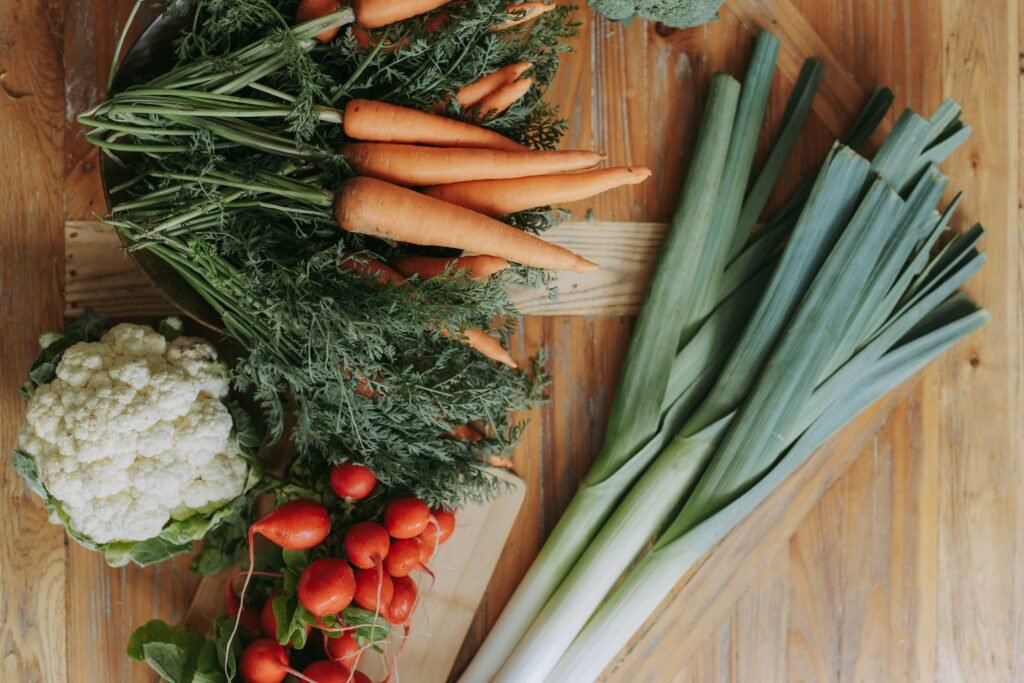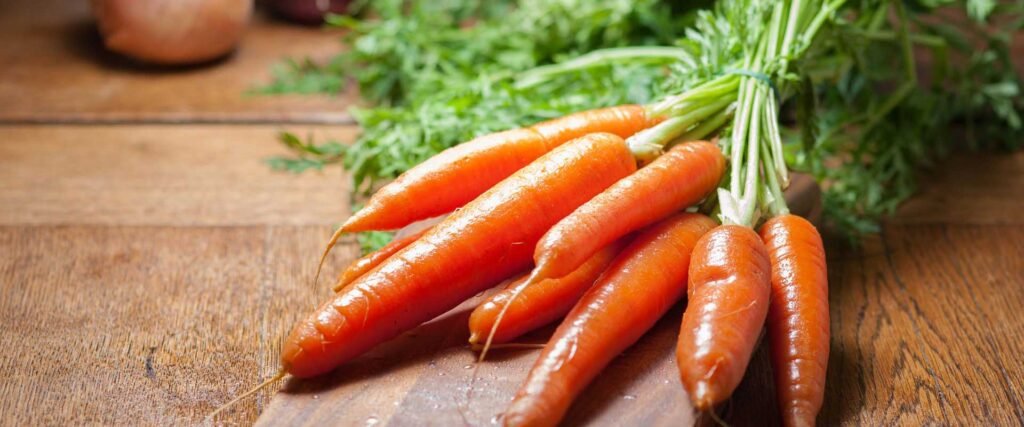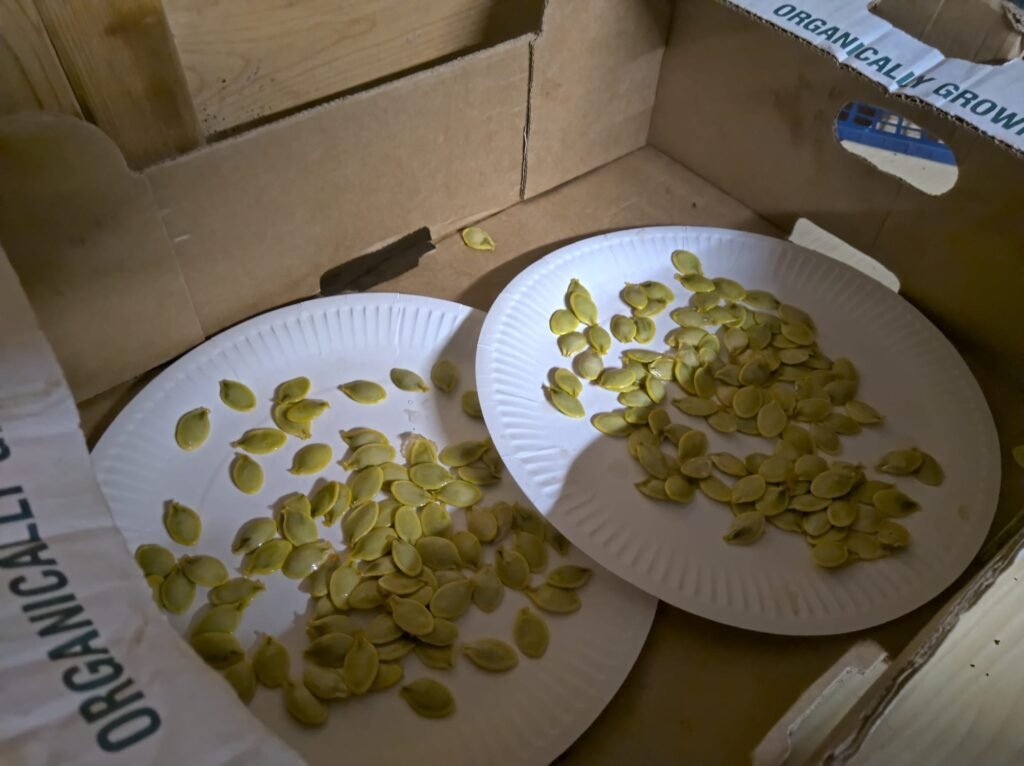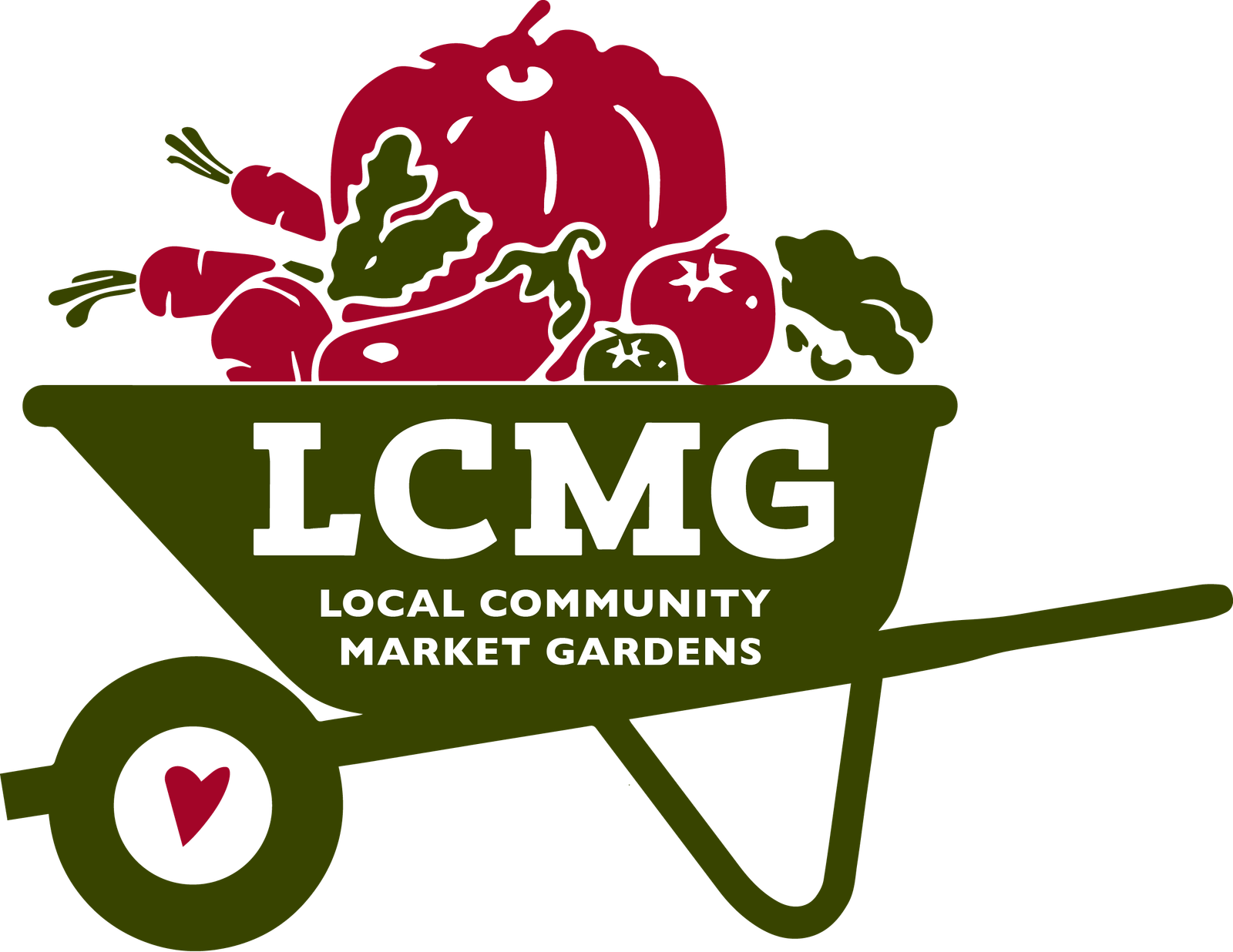Vegetable deliveries
Our veg orders are available with 6–8 varieties of freshly picked vegetables. You will get a mix of root veg and greens, but can be choosy about what your order contains!
Vegetable boxes offer a multitude of benefits for both consumers and communities alike. Vegetable boxes reduce the carbon footprint associated with transportation, contributing to a more sustainable food system. Moreover, consumers can enjoy fresher and more flavourful produce, as vegetables are harvested at peak ripeness and delivered directly to their doorstep.

Support also helps bolster the regional economy, fostering a sense of community resilience and food security. Additionally, opting for locally produced vegetable boxes often means embracing seasonal eating, which promotes diversity in diets and encourages a deeper connection to the natural rhythms of the local environment.
What’s in the boxes
In the UK, the availability of fresh vegetables can vary greatly by season due to the climate and growing conditions. Here’s what to expect in our veg boxes by season based on their availability:
Spring (March to May)
- Leeks: Available through late winter to spring.
- Spinach: Early season crop, often available in late spring.
- Salad (including lettuces and salad greens): Generally planted in spring and available through to early summer.
- Parsnips: Available in spring.
- Onions: Available in spring.
- Kale: Available in spring.
Summer (June to August)
- Beetroot: Harvested in mid to late summer, but can also be available in autumn.
- Carrots: Typically sown in spring and harvested in summer and early autumn.
- Kale: Can be planted in late spring and early summer for a summer harvest. Also available in autumn.
- Salad: Continues from spring, with a wide variety available throughout the summer.
- Spinach: Early summer crop; may bolt in very hot weather but can be sown again for an autumn harvest.
- Potatoes: Early varieties are harvested in late spring to early summer; maincrop varieties are harvested in late summer.
Autumn (September to November)
- Beetroot: Continues from summer into autumn.
- Carrots: Continues from summer into autumn.
- Kale: Can be harvested from summer through to autumn, and often even into winter.
- Leeks: Planted in spring and harvested in autumn, and can continue to be available in winter.
- Onions: Harvested in late summer to autumn, typically dried and stored for winter use.
- Parsnips: Harvested from late autumn, and they taste better after the first frost.
- Spinach: Can be sown again in late summer for an autumn harvest.
- Potatoes: Maincrop harvested in late summer to autumn.
Winter (December to February)
- Leeks: Continue to be available through winter.
- Kale: Extremely hardy, available throughout the winter.
- Parsnips: Harvested in late autumn and winter; they can be left in the ground and are often sweeter after frost.
- Onions: Stored varieties are available throughout the winter.
- Carrots: Late-harvest varieties or stored carrots are available.
- Potatoes: Stored potatoes are available through the winter months.
- Beetroot: Late-harvest or stored beetroot can be available.
Summary Table
| Vegetable | Spring | Summer | Autumn | Winter |
|---|---|---|---|---|
| Onions | ✔ | ✔ | ✔ | |
| Leeks | ✔ | ✔ | ✔ | |
| Carrots | ✔ | ✔ | ✔ | |
| Parsnips | ✔ | ✔ | ✔ | |
| Beetroot | ✔ | ✔ | ✔ (stored) | |
| Kale | ✔ | ✔ | ✔ | ✔ |
| Spinach | ✔ | ✔ | ✔ | |
| Salad | ✔ | ✔ | ||
| Potatoes | ✔ | ✔ | ✔ (stored) |




Our organic vegetable boxes represent a sustainable and environmentally friendly approach to agriculture.
How we grow it
By avoiding disruption to the soil structure, beneficial microorganisms and earthworms are preserved, promoting healthy soil biodiversity and fertility. This method also helps to minimise soil erosion, conserve water, and reduce greenhouse gas emissions associated with traditional tillage practices. The resulting vegetables are grown in nutrient-rich soil, free from synthetic pesticides and fertilisers, thereby offering consumers a healthier and more nutritious option. Organic vegetable boxes produced through the our system not only support sustainable farming practices but also contribute to the wellbeing of ecosystems, biodiversity, and the overall health of consumers.
Order a Veg Box
Want to try a veg box? Order one here and we will process your order.
Deliveries are made on a Thursday (late morning or early afternoon).
